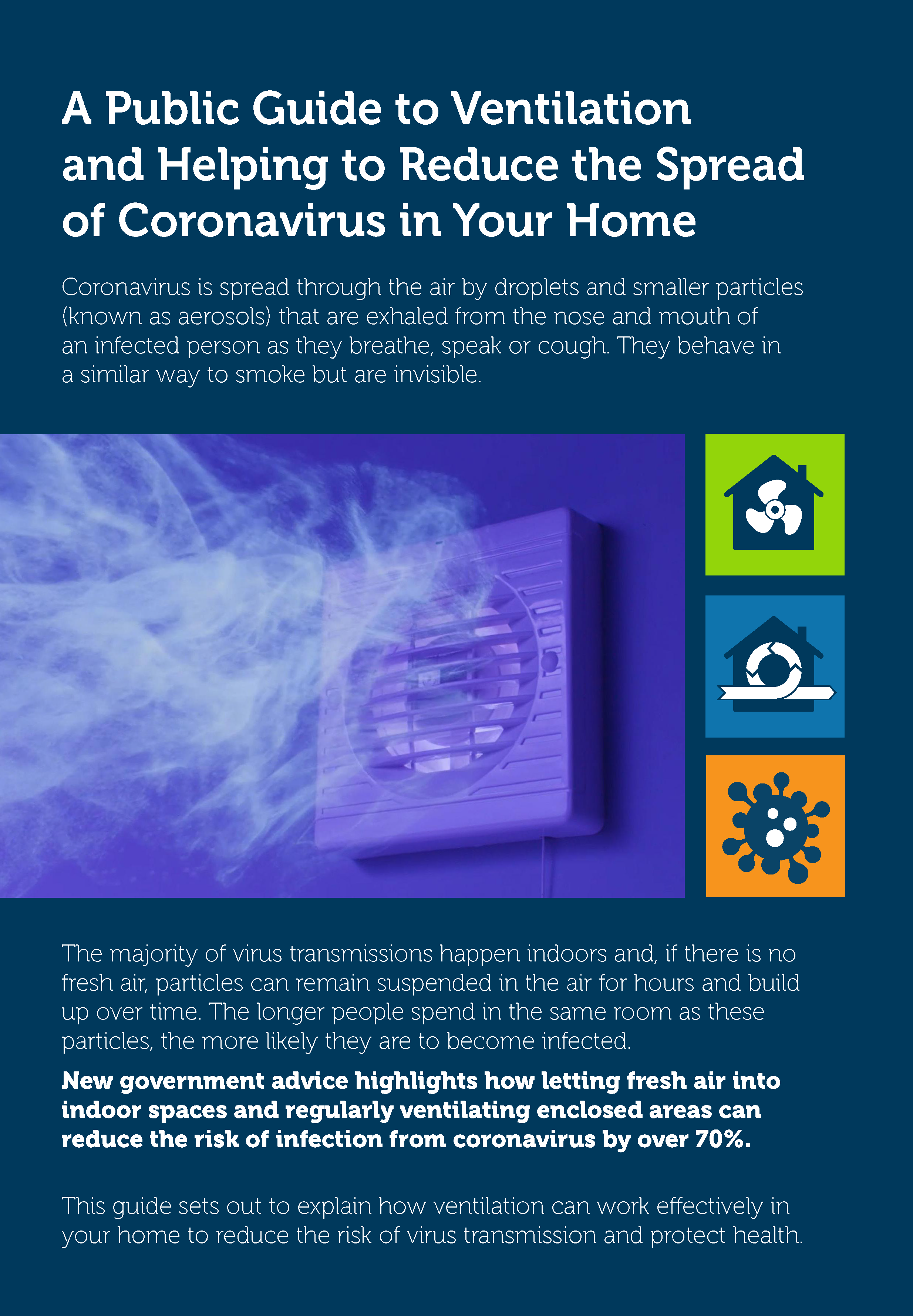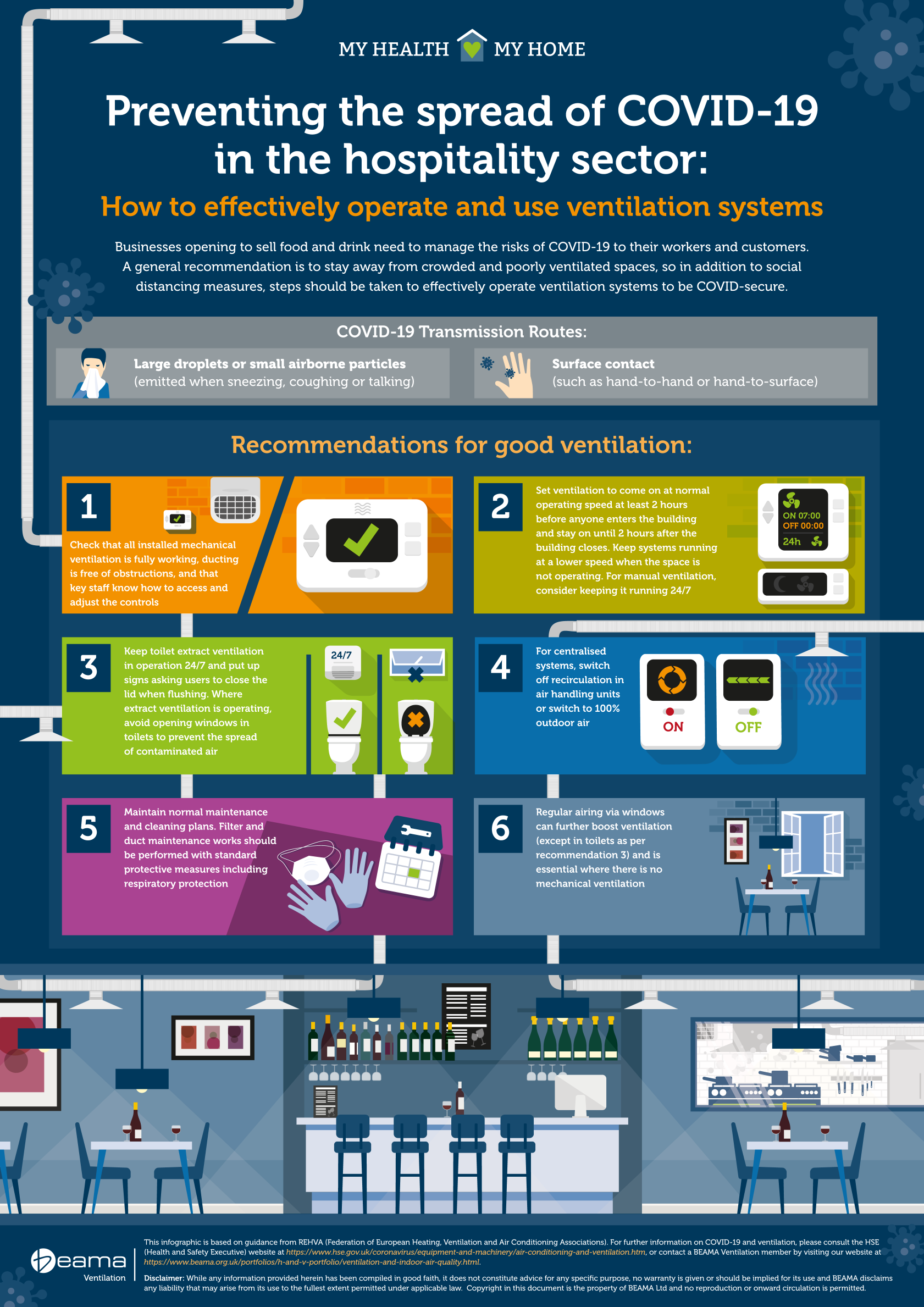What is the link between COVID-19 and ventilation?
Coronavirus is spread through the air by droplets and smaller particles (known as aerosols) that are exhaled from the nose and mouth of an infected person as they breathe, speak or cough.
The majority of virus transmissions happen indoors and, if there is no fresh air, particles can remain suspended in the air for hours and build up over time. The longer people spend in the same room as these particles, the more likely they are to become infected.
New government advice highlights how letting fresh air into indoor spaces and regularly ventilating enclosed areas can reduce the risk of infection from coronavirus by over 70%
The importance of indoor air quality and ventilation
Poor indoor air quality (IAQ), or indoor air pollution, is linked to a range of health conditions that contribute to a significant loss of healthy life years, premature mortality and significant cost to the NHS and wider economy. Ventilation and air exchange help deliver improved indoor air quality, reduce the impact of airborne viruses and have a positive impact on personal health and wellbeing. The most important thing you can do is know how your house is ventilated, ensure it is ventilated properly and keep up a good maintenance and cleaning regime.
For more information on indoor air quality and ventilation please visit: indoorairpollution.co.uk

Resources
Preventing the Spread of COVID-19 in the Hospitality Sector: How to Effectively Operate and Use Ventilation Systems
This infographic aims to provide clear ventilation guidance for the hospitality sector to help prevent the spread of COVID-19.




